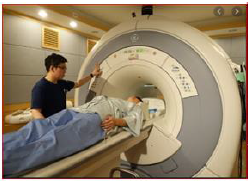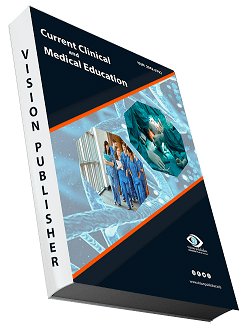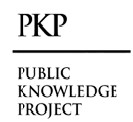Medical Diagnosis Using Positron Emission Tomography (PET/PET-CT)
Keywords:
Medical Diagnosis, Positron Emission, TomographyAbstract
The increasing role of positron emission tomography (PET) in the diagnosis and staging of malignant disease and monitoring of therapy response can be attributed to significant improvements made in the performance of this imaging technology. Anticipated progress is frequently constrained by the physics of PET, and current designs of PET scanners aim at an ultimately high spatial resolution and sensitivity as well as improved signal-to-noise properties. Recent advances in the field of PET instrumentation include the introduction of novel scintillation crystal technology and detector electronics, as well as the widespread introduction of fast and efficient, iterative image reconstruction algorithms for fully three-dimensional (3D) PET data sets. These advances have led to a dramatic reduction in clinical imaging times while improving image quality. Finally, the combination of functional imaging and computed tomography (CT) within a combined PET/CT tomography provides a tool to accurately localize functional abnormalities in an anatomical context.
Downloads
References
Wikipedia, the free encyclopedia.
Weber WA, Avril N, Schwaiger M. Relevance of positron emission Tomography PET in oncology.Strahlenther Onkol. 1999; 175:356–373.
Freudenberg LS, Antioch G, Mueller SP, et al. Preliminary results of Whole-body FDG-PET/CT in lymphoma[abstract]. J Nucl. Med. 2002; 43:30P
Gopal B. Saha, ―Basics of PET Imaging Physics, Chemistry, and Regulations‖, Book, RC78.7.T62S24 2004.
Bushberg JT, Seibert JA, Leidholdt, EM Sr, Boone JM. The Essential Physics of Medical Imaging. 2nd ed. Philadelphia: Lippincott, Williams & Wilkins; 2002.
Vibhu Kapoor, Barry M. McCook, Frank S. Torok,‖ An Introduction to PET-CT Imaging‖ Book, 2004.
H. Herzog (2007), "Methods and applications of positron-Based medical imaging", Radiation PhysicsChemistry 76 (2): pp. 337–342, 2006.
Society and College of Radiographers. Learning and development Framework for hybrid nuclear medicine/computed tomography Practice (SPECT-CT/PET-CT). www.sor.org. 2009
Society of Nuclear Medicine and American Society of Radiologic Technologists. Positron emissiontomography (PET)-computed Tomography (CT) curriculum PETCTCurriculumAccepted021704.pdf. 2004
CT scan – Mayo Clinic". Mayoclinic.org. Archived from the original On 15 October 2016. Retrieved 20October 2016.
Herman, G. T., Fundamentals of computerized tomography: Image Reconstruction from projection, 2ndedition, Springer, 2009.
Brenner DJ, Hall EJ (November 2007). "Computed tomography – an Increasing source of radiation exposure"(PDF). N. Engl. J. Med. 357 (22): 2277–84.
Renner DJ, Hall EJ (2007). "Computed Tomography — an Increasing Source of Radiation Exposure". NewEngland Journal of Medicine. 357 (22): 2277–2284. Doi: 10.1056/NEJMra072149. PMID 18046031.
Goldman, L. W. (2008). "Principles of CT: Multislice CT". Journal of Nuclear Medicine Technology. 36 (2):57–68.
Larson DB, Rader SB, Forman HP, Fenton LZ (August 2007). "Informing parents about CT radiationexposure in children: it's OK to tell them". Am J Roentgenol. 189 (2): 271–5.
Margolis, Simeon, et al. The Johns Hopkins Consumer Guide to Medical Tests: What You Can Expect, HowYou Should Prepare, What Your Results Mean. New York: Rebus Inc., 2002.
Segen, J. C., et al. The Patient's Guide to Medical Tests: Everything You Need to Know about the Tests YourDoctor Prescribes. New York: Facts on File, 2002.

Downloads
Published
How to Cite
Issue
Section
License

This work is licensed under a Creative Commons Attribution 4.0 International License.
Current Clinical and Medical Education













